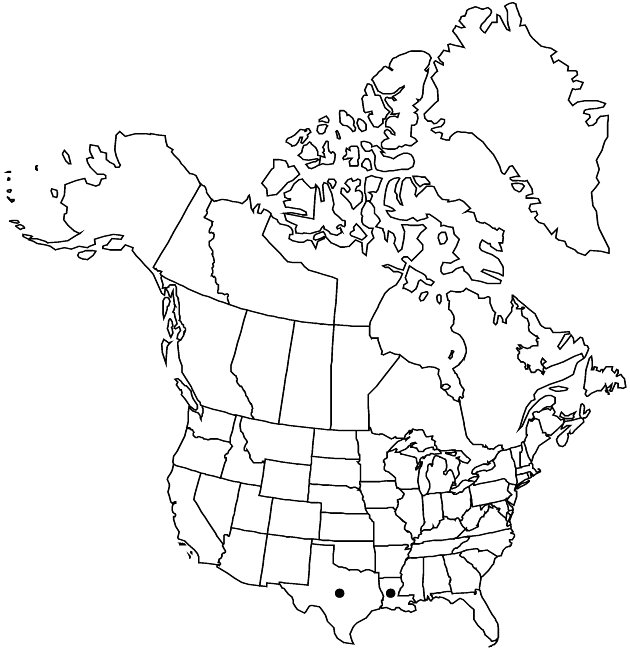Difference between revisions of "Rudbeckia texana"
Phytologia 67: 366. 1989.
FNA>Volume Importer |
FNA>Volume Importer |
Revision as of 18:45, 24 September 2019
Perennials, to 150 cm (rhizomatous, roots fibrous). Leaves green, blades elliptic to lanceolate (not lobed), ± leathery, bases attenuate to cuneate, margins entire, serrate, or toothed, apices acute to acuminate, faces glabrous or sparsely hairy; basal 15–50 × 3–9 cm; cauline petiolate or sessile, 5–50 × 2–12 cm. Heads borne singly or (2–5) in ± corymbiform arrays. Phyllaries to 2.5 cm (margins sometimes ciliate). Receptacles ovoid to ellipsoid; paleae 6–8 mm, apices acute (appressed in young heads), abaxial tips hairy. Ray florets 10–16; laminae oblong to oblanceolate, 20–50 × 8–12 mm, abaxially hairy. Discs 20–45 × 10–20 mm. Disc florets 200–500+; corollas proximally greenish yellow, distally maroon, 3.5–5 mm; style branches ca. 2 mm, apices acute. Cypselae 5–7.5 mm; pappi coroniform, to 1.5 mm. 2n = 36.
Phenology: Flowering late spring–fall.
Habitat: Swales, prairies, ditches, bayous
Elevation: 0–50 m
Discussion
Rudbeckia texana grows in western Louisiana and eastern Texas.
Selected References
None.
